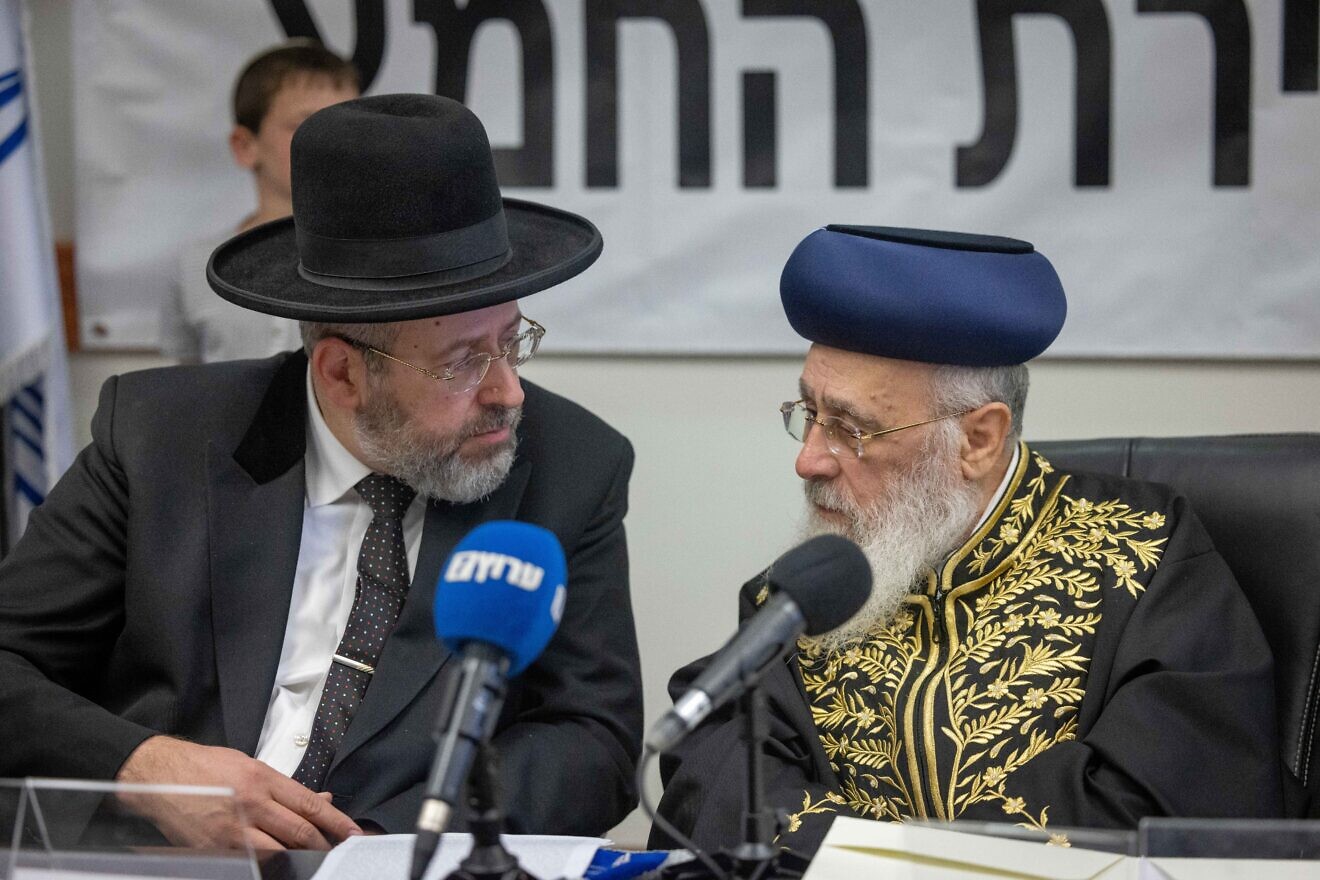A group that describes itself as “unabashedly progressive” is defending its decision to hold an Oct. 7 memorial for “Sephardic, Mizrachi and all Jews of color,” after the event drew criticism from the American Sephardi Federation for its exclusionary character.
The Zioness Movement, a nonprofit, plans to hold the Zoom-based “Oct. 7 memorial space” on Oct. 10 at 8 p.m. Eastern. A poster for the event includes the logos of the Jewish Federations of North America—although the logo is cropped to read “Federation” in the singular—National Council of Jewish Women, Kamochah (which works with black Orthodox Jews) and the progressive groups IPF Atid, A Wider Bridge, Jewish Council for Public Affairs and Atlanta Jews of Color Council.
Isaiah Rothstein, a rabbinic scholar and public affairs advisor at JFNA’s Center for Jewish Belonging, told JNS that Federations are “committed to ensuring a sense of belonging for every member of the Jewish community.”
“That includes support for affinity spaces that serve as important avenues of participation for some members of our community,” he said.
Jason Guberman, executive director of the American Sephardi Federation, told JNS that the “Zioness event was a missed opportunity to bring all Jews together, to affirm our proud history, traditions and resilience in the face of evil and to empower Jews of all backgrounds to undermine and defy bigotry.”
“Antisemites do not discriminate between the types of Jews they hate, but rather hate all Jews,” he added.
The Zioness Movement defended its scheduled event in a series of social-media posts.
“We understand there are some criticisms of the Oct. 7 memorial, which Zioness and other Jewish organizations are hosting as an affinity space for Sephardic, Mizrachi and all Jews of color,” the nonprofit wrote.
It added that “many Zionist Jews of color” have found that “some Jews of color and many non-Jewish people of color” gatherings after Oct. 7 have included “calls for a unilateral Israeli ceasefire, a series of antisemitic tropes or a criticism of Israel’s response to the worst massacre of the Jewish people since the Holocaust.”
“At the same time, too many Jews of color in America went to mainstream Jewish vigils and grieving spaces, and experienced an unwelcome environment in which they were othered” or encountered “incorrect assumptions” about their identities as Jews, the group said.
The group maintained that it wasn’t separating people based on race. “The purpose of this event is not to divide the Jewish community, but to create a safe environment for Jews who have not always felt welcomed in it,” it said.
“All Jews are ‘of color.’ We are a minority people, indigenous to Judea. Our homeland is what is today called the State of Israel,” wrote Brooke Goldstein, founder and executive director of the Lawfare Project, founder of End Jew Hatred and a co-founder of Zioness.
Her vision is “to empower all Jews to connect with our indigeneity and ancestry,” she wrote. “True Jewish leadership should never set up false dichotomies that pit Jew against Jew.”
Isaac de Castro, deputy audience editor at Tablet magazine, wrote that he, “as a living, breathing Sephardic person, who grew up in a Sephardic community and Sephardic day schools, would like to remove myself from this narrative where I would need a ‘safe space’ from Ashkenazim.”
“I do not know a single person in real life who would want this. We exist in community with Ashkenazi people. It’s not 1952. Leave us alone,” he wrote.
Liel Leibovitz, editor-at-large at Tablet, wrote that “finally, Jewish organizations have the courage to tell the truth: Hamas didn’t just murder Jews for being Jews. They first asked their victims if they identified as Jews of color, then confirmed their pronouns and only then slaughtered them. Stunning and brave.”


























